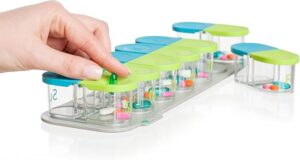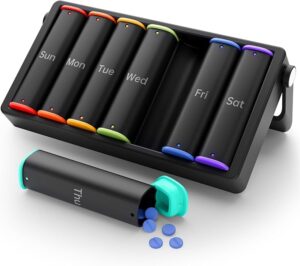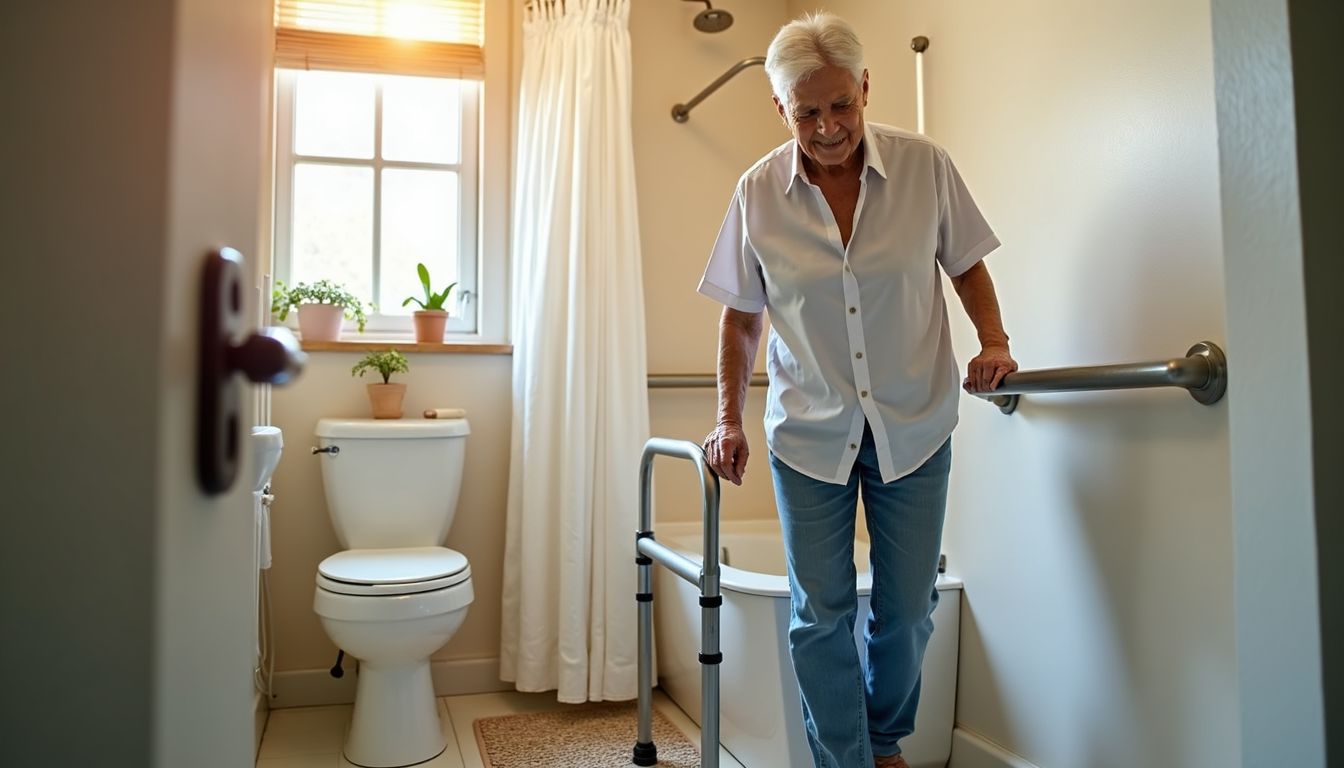Managing medications is a crucial part of maintaining health for seniors. As people age, they often take multiple prescriptions, vitamins, or supplements, which can make remembering the right dose at the right time confusing and stressful.
To avoid missed doses, accidental overdoses, or serious health issues, it’s important for caregivers to know how to help elderly manage medications effectively. Having a clear system in place ensures seniors stay safe and healthy every day.
In this guide, we’ll share practical tips, tools, and strategies to help elderly loved ones manage their medications safely and effectively. Whether you’re a caregiver or a senior looking to stay independent, these tips will make medication management easier, safer, and more organized.
Understanding Medication Challenges for Seniors
As seniors age, managing medications becomes more complicated due to several factors:
1. Memory Issues
-
Many elderly people struggle to remember whether they’ve taken their medications.
-
Skipping doses or taking extra by mistake can cause health risks or reduce the effectiveness of treatment.
2. Vision and Dexterity Problems
-
Small pill bottles, tiny print labels, and blister packs can be difficult to read or open.
-
Arthritis or reduced hand strength can make handling medications challenging.
3. Complex Medication Schedules
-
Seniors often take multiple medications at different times of the day.
-
Confusing schedules increase the risk of missed doses or accidental double dosing.
4. Side Effects and Interactions
-
Some medications may interact with each other or cause side effects that seniors may not notice immediately.
-
Without careful management, this can lead to serious health complications.
5. Lack of Support
-
Seniors living alone may not have anyone to remind them or check their medications, which can increase mistakes.
Understanding these challenges is the first step toward creating a safe and effective system for managing medications.
Tools to Help Manage Medications
Using the right tools can make it much easier to help elderly manage medications safely and efficiently. Here are some effective options:
1. Pill Organizers
-
Pill organizers are one of the simplest and most effective tools for seniors.
-
They come in daily, weekly, or monthly formats, with compartments for morning, afternoon, and evening doses.
-
Benefits: Reduces missed doses, keeps pills organized, and makes it easy for caregivers to monitor.
2. Smart Pill Organizers
-
These high-tech organizers remind seniors when to take their medications through alarms, lights, or smartphone notifications.
-
Some even track adherence and alert caregivers if a dose is missed.
-
Ideal for seniors with memory issues or complex medication schedules.
3. Medication Reminder Apps
-
Apps like Medisafe, CareZone, or MyMeds can send reminders directly to smartphones.
-
Features include tracking doses, logging missed medications, and providing refill alerts.
-
Great for seniors comfortable with technology or caregivers managing remotely.
4. Labeled Medication Charts
-
A simple printed or handwritten chart lists all medications, dosages, and timing.
-
Use color coding or large print for better visibility.
-
Works well for seniors who prefer a low-tech approach or for backup alongside pill organizers.
5. Automatic Dispensers
-
These devices release the correct dose at the scheduled time.
-
Some models allow caregivers to control remotely and track adherence.
Perfect for seniors taking multiple medications daily.
Tips for Caregivers
Caregivers play a vital role in learning how to help elderly manage medications safely and effectively. Here are some practical strategies to make medication routines easier and more reliable:
1. Establish a Routine
-
Set a consistent schedule for filling pill organizers and giving reminders.
-
Consistency helps seniors remember doses and makes medication management less stressful.
2. Prepare Medications Weekly
-
Organize pills for the entire week in a pill organizer.
-
Double-check doses during prep to prevent mistakes.
3. Monitor and Supervise
-
Even if seniors manage medications themselves, periodically verify doses have been taken correctly.
-
This is especially important for those with memory or vision challenges.
4. Communicate with Healthcare Providers
-
Keep doctors and pharmacists informed about all medications, including over-the-counter supplements.
-
Discuss any side effects or dosage changes promptly.
5. Educate Seniors
-
Teach seniors how to use pill organizers or reminder apps effectively.
-
Encourage asking questions if they’re unsure about a dose.
6. Keep an Updated Medication List
-
Maintain a current list of all medications, doses, and schedules.
-
Share it with family members or caregivers to ensure everyone is informed.
7. Be Patient and Supportive
-
Remember, medication management can be stressful or confusing for seniors.
-
Offering gentle reminders and positive reinforcement can improve adherence and confidence.
Following these tips helps caregivers ensure seniors take medications safely while promoting independence.
Involving Seniors in the Process
Encouraging seniors to actively participate in managing their medications can improve adherence and promote independence. Here’s how:
1. Teach Proper Use of Pill Organizers
-
Show seniors how to fill and use daily or weekly pill organizers.
-
Make sure compartments are clearly labeled for easy identification.
2. Encourage Routine Habits
-
Help seniors link medication times to daily activities, like meals or bedtime, to make it easier to remember.
-
Gradually, these routines can become automatic habits.
3. Use Visual Aids
-
Use color-coded labels, charts, or large-print instructions to reduce confusion.
-
Visual reminders help seniors track doses independently.
4. Introduce Reminder Tools Gradually
-
For tech-savvy seniors, introduce reminder apps or smart organizers.
-
Provide hands-on demonstrations until they are comfortable using the devices.
5. Encourage Questions and Feedback
-
Seniors should feel comfortable asking about medications or reporting side effects.
-
Open communication helps prevent mistakes and ensures better health outcomes.
6. Celebrate Small Wins
-
Acknowledge when seniors take medications correctly or follow schedules.
- Positive reinforcement builds confidence and motivation.
Safety Practices
Ensuring medications are stored and handled safely is critical for seniors’ health. Follow these key safety practices:
1. Store Medications Properly
-
Keep medicines in a cool, dry place away from direct sunlight.
-
Avoid storing medications in bathrooms where humidity can affect potency.
2. Keep Medications Out of Reach of Children and Pets
-
Use childproof containers if there are young children in the household.
-
Make sure pets cannot access any medications.
3. Check Expiration Dates Regularly
-
Dispose of expired medications safely to prevent accidental ingestion.
-
Regularly review medications with a pharmacist or healthcare provider.
4. Avoid Mixing Pills
-
Do not mix different medications in a single container unless it’s a properly labeled pill organizer.
-
Mixing can lead to confusion or accidental overdose.
5. Handle With Care
-
Wash hands before handling medications to prevent contamination.
-
Use a spoon or pill cutter if needed instead of breaking pills by hand.
6. Keep a Medication List Handy
-
Maintain an updated list of all prescriptions, over-the-counter drugs, and supplements.
-
Share this list with caregivers, family, and healthcare providers.
7. Be Cautious with New Medications
-
Whenever starting a new medication, monitor for side effects or interactions.
-
Report unusual symptoms to a healthcare professional immediately.
Managing medications can be challenging for seniors, but with the right tools, routines, and support, it becomes much easier and safer.
Pill organizers, smart dispensers, reminder apps, and proper caregiver involvement help seniors stay on track with their medications, prevent mistakes, and maintain independence. By following safety practices, keeping an updated medication list, and involving seniors in the process, caregivers can ensure their loved ones take medications correctly and confidently.
Investing time in organizing and monitoring medications today can prevent serious health issues tomorrow, giving seniors peace of mind and improved quality of life.
Helping seniors manage medications safely is crucial for their health and well-being. Using tools like the AUVON iMedassist 7 Day Pill Organizer or the Sagely Smart XL Large Pill Organizer can make daily routines simpler and more reliable. For caregivers, our guide on What is a Pill Organizer? explains the benefits of different pill management systems. Additionally, combining medication management with gentle physical activity, such as our 10 Easy Mobility Exercises for Seniors, helps maintain overall wellness.







